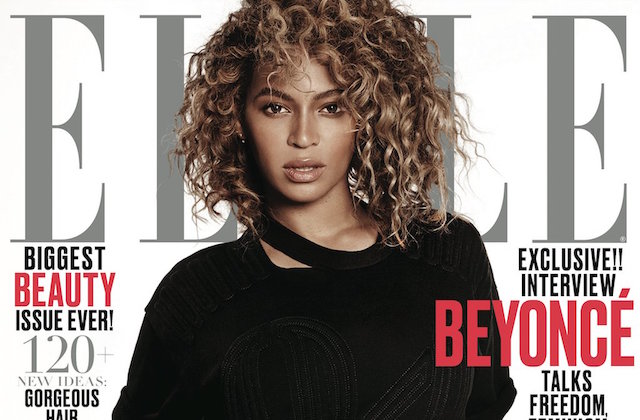Beyoncé typically lets her music speak for her, skipping interviews in favor of song lyrics. But in the weeks following the release of her controversial video for the song “Formation,” she sat down with Elle magazine to share her thoughts on some of the issues her music raises. Here’s what the star had to say about police violence, feminism and why she doesn’t strive to be perfect.
On police violence:
I mean, I’m an artist and I think the most powerful art is usually misunderstood. But anyone who perceives my message as anti-police is completely mistaken. I have so much admiration and respect for officers and the families of officers who sacrifice themselves to keep us safe. But let’s be clear: I am against police brutality and injustice. Those are two separate things. If celebrating my roots and culture during Black History Month made anyone uncomfortable, those feelings were there long before a video and long before me. I’m proud of what we created and I’m proud to be a part of a conversation that is pushing things forward in a positive way.
On feminism:
I put the definition of feminist in my song [“Flawless”] and on my tour, not for propaganda or to proclaim to the world that I’m a feminist, but to give clarity to the true meaning. I’m not really sure people know or understand what a feminist is, but it’s very simple. It’s someone who believes in equal rights for men and women. I don’t understand the negative connotation of the word, or why it should exclude the opposite sex. If you are a man who believes your daughter should have the same opportunities and rights as your son, then you’re a feminist. We need men and women to understand the double standards that still exist in this world, and we need to have a real conversation so we can begin to make changes. Ask anyone, man or woman, “Do you want your daughter to have 75 cents when she deserves $1?” What do you think the answer would be? When we talk about equal rights, there are issues that face women disproportionately…. Working to make those inequalities go away is being a feminist, but more importantly, it makes me a humanist. I don’t like or embrace any label. I don’t want calling myself a feminist to make it feel like that’s my one priority, over racism or sexism or anything else. I’m just exhausted by labels and tired of being boxed in. If you believe in equal rights, the same way society allows a man to express his darkness, to express his pain, to express his sexuality, to express his opinion—I feel that women have the same rights.
On perfectionism:
It’s really about changing the conversation. It’s not about perfection. It’s about purpose. We have to care about our bodies and what we put in them. Women have to take the time to focus on our mental health—take time for self, for the spiritual, without feeling guilty or selfish. The world will see you the way you see you, and treat you the way you treat yourself.
You can read the full interview, which also appears in the May 2016 issue of Elle, here.
